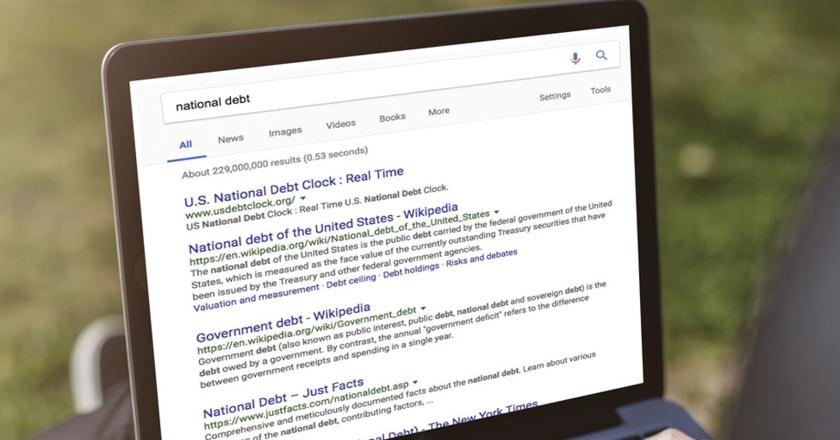Over the past decade and a half, the portion of Americans who trust the media at least “a fair amount” has shrunk from 54 percent in 2003 to a record low of 32 percent in 2016. During this same period, the internet became the most trusted source of information in America. A 2009 Zogby poll that asked Americans what sources of information are most reliable found: “The internet was way out front with 37%, with the others closely bunched as follows: television 17%, newspapers 16% and radio 13%.”
Why is the internet considered more reliable? A leading theory is that it gives people unprecedented access to sources that reinforce their viewpoints. As pollster John Zogby said: “The internet allows people to seek information from thousands of blogs, aggregators and social networks, and to migrate to those that share their point of view.” This is a manifestation of confirmation bias, which is the human tendency to favor information that supports one’s views. This common trait makes it difficult to reach people with facts that don’t align with their preconceptions.
The same is true of social media. A 2017 paper in The Proceedings of the National Academies of Sciences found: “Content consumption on Facebook is strongly affected by the tendency of users to limit their exposure to a few sites. Despite the wide availability of content and heterogeneous narratives, there is major segregation and growing polarization in online news consumption.”
All these trends present a tremendous obstacle to reaching people who are not already in “the choir.”
There is, however, an important exception to the partisan self-censorship that dominates today’s media consumption: Information gathered through search engines. A 2012 Pew poll found that 73% of Americans use search engines, and “73% of search engine users say that most or all the information they find as they use search engines is accurate and trustworthy.”
The impact of search engines on public opinion was documented in a 2015 paper in the Proceedings of the National Academy of Sciences. This research presented “evidence from five experiments in two countries” showing that “biased search rankings can shift the voting preferences of undecided voters by 20% or more.”
The quality and diversity of links is vital. Links from credible organizations have more value than links from blogs, and 10 links from different websites have much more value than 10 links from the same website.
When voters, students, educators, and researchers are seeking information about a policy issue, their typical first course of action is to search for it via Google or another search engine, such as Yahoo or Bing. When they do this, they inevitably find millions of results, but the vast majority of people don’t look beyond the first 10 results, which account for more than 95 percent of all search engine referrals.
Hence, the top 10 results receive the lion’s share of search engine visitors, while the remaining millions of results are virtually ignored.
Yet, Just Facts, a small four-person think tank, received more than 1.4 million separate visits from search engines in 2017. Just Facts has top-10 search engine rankings for terms such as national debt, healthcare facts, gun control, tax facts, social spending, racial issues, education facts, and immigration facts. This drives a continual stream of new, information-seeking readers to our research.
Note that these search engine rankings are completely organic, as Just Facts has never used any type of search engine optimization service. The rankings are simply the outgrowth of applying these basic principles:
Produce quality content. It’s no secret that links are crucial to search engine rankings. If you publish content that people want to link to, you have taken the most important step for great rankings. Note that the quality and diversity of links is vital. Links from credible organizations have more value than links from blogs, and 10 links from different websites have much more value than 10 links from the same website.
Make an overview page for every issue that is important to your organization. Keep this page up to date with the latest information and your publications on this issue. Link to this page in your content.
Place keywords in the URL. For instance, if your article is about the national debt, make sure it has the phrase “national debt” in the URL. Don’t use a generic URL generator that assigns only numbers to your URLs.
Publicize your work to educators, elected officials, journalists, and commentators who are likely to find it valuable. Send them personalized notes that show you understand their work and how your content fits with it. Take the time to do quality publicity that brings real value to the recipients. Also, respect their time and don’t inundate them.
If you haven’t already done so, make all pages of your website secure via an SSL certificate.
Be honest. Don’t hire search engine optimization firms that use questionable practices like link-building campaigns. And don’t wantonly post links to your website.
For additional tips, read Google’s Search Engine Optimization (SEO) Starter Guide (support.google.com/webmasters/answer/7451184?hl=en).
None of this is rocket science. It’s just a matter of doing the right things and doing them consistently.
Mr. Agresti is the President of the Just Facts Foundation.
